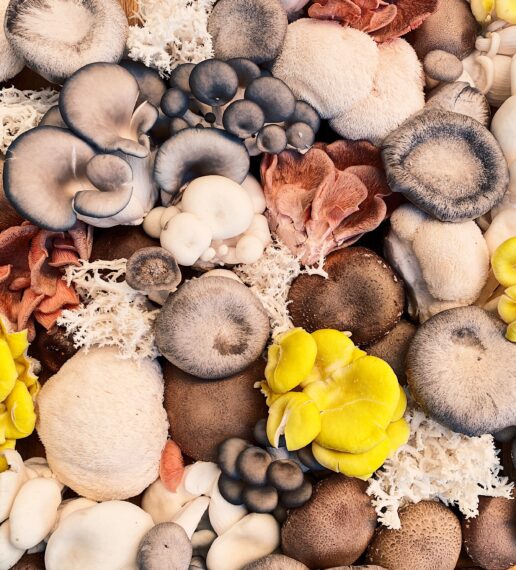Daily Stress Got You Down? These 5 Mushrooms Can Help

According to the American Psychiatric Association, 34% percent of adults are “completely overwhelmed” by stress most of the time, and 27% often feel “so stressed they can’t function.”[1]
Even if you’re not quite that overwhelmed, you might still experience symptoms like these when daily pressures pile up:[2]
- Irritability
- Anger
- Headaches
- Racing thoughts
- Digestive distress
- Muscle tension or pain
- Elevated heart rate and blood pressure
These symptoms can disrupt your sleep, make it hard to concentrate, and weaken your immune system—which can make you more stressed!
5 Mushroom Supplements to Reduce Stress Levels
Since stress can throw your body out of balance, it’s important to find healthy ways to deal with it.
Mushrooms have been a go-to stress remedy in traditional Chinese medicine for thousands of years. Thanks to their unique compounds, some mushroom supplements can help the body adapt to and deal with daily stress levels.*
1) Chaga: Anti-inflammatory Antioxidant Power*
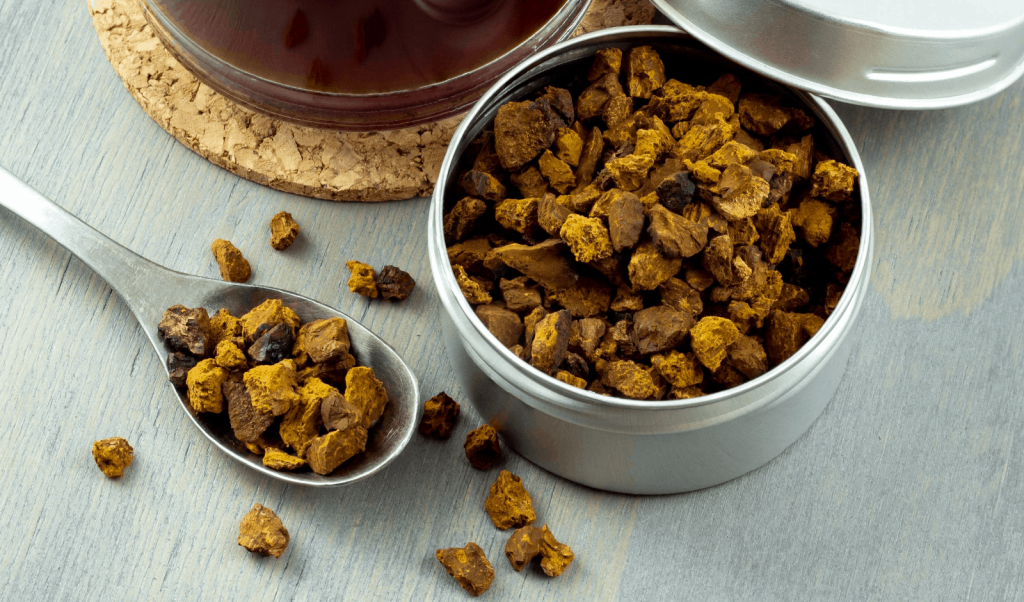
As one of the most potent antioxidant sources available, chaga mushroom may be able to protect against stress-induced inflammation.*
Stress causes oxidative stress, an imbalance between pro- and antioxidants in your body.[3] Pro-oxidants can create free radicals, unstable molecules that cause cell damage and trigger inflammation.
Studies show that chaga may prompt cells to make more antioxidants to neutralize free radicals and restore balance.* The mushroom also appears to regulate cytokines, the substances responsible for pro- and anti-inflammatory reactions, which could help prevent or reduce stress-related inflammation.[4]
2) Cordyceps: The One True Adaptogenic Mushroom
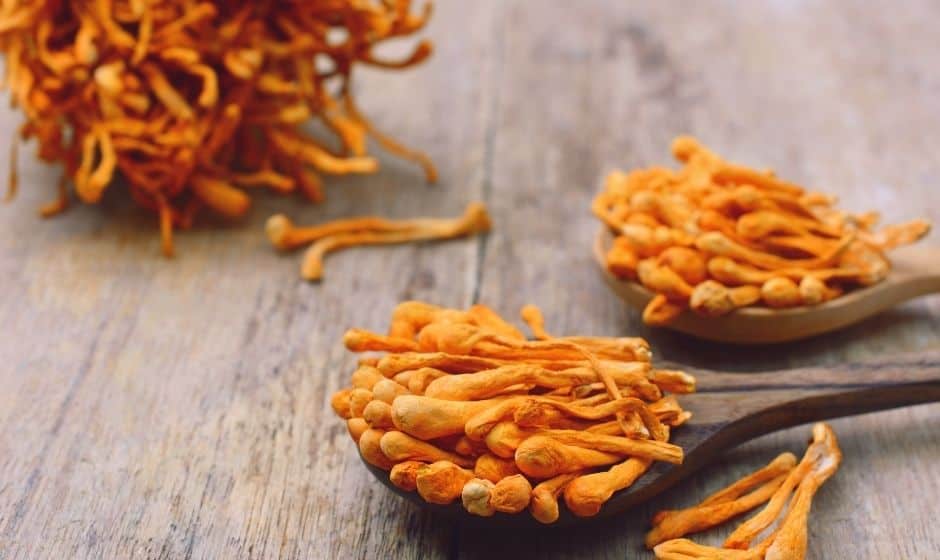
Cordyceps mushrooms have traditionally been used as a remedy for fatigue, weakness, and low energy. This may be because cordyceps is the only mushroom that qualifies as a true adaptogen:* a non-toxic substance that normalizes body functions to maintain balance across body systems in the face of stress.[5]
The adaptogenic effects of cordyceps mushrooms may include:*[6]
- Balancing protein and immune cell activity to regulate inflammation
- Promoting blood vessel relaxation to reduce blood pressure
- Boosting natural antioxidant activity in the brain, liver, and bloodstream
- Balancing the immune system[7]
- Influencing immune function and microbial balance in the gut[8]
Cordyceps may also influence both serotonin and dopamine, key neurotransmitters in mood regulation,[9] as well as support the health of nerve fibers that carry signals between cells in the brain.* These combined effects could help support brain health and prevent brain cell damage during periods of chronic stress.*
3) Lion’s Mane: The Great Brain Protector*
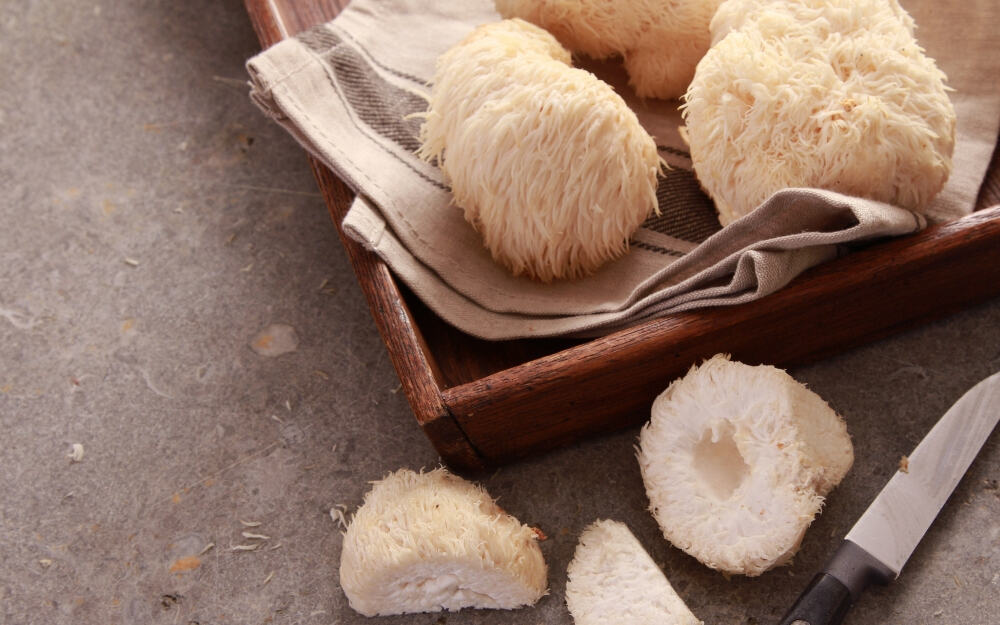
Maintaining balance in the brain is important for immunity, metabolic function, and neuroendocrine activity like blood sugar balance and blood pressure control.[10] But stress can cause changes in the brain that make brain cells resistant to insulin and impair cell growth.
Stress can increase the release of glutamine, an “excitatory” neurotransmitter that overstimulates brain cells, interferes with cell structure, and can cause cell death. Oxidative stress from high cortisol levels may contribute to cell damage and inflammation.[11]
Lion’s mane mushrooms may minimize these effects.* Research shows that brain cells pre-treated with lion’s mane water extract appear to resist cortisol damage, possibly due to increased antioxidant activity.[12]* Lion’s mane may also reduce inflammation in the brain and promote brain cell growth.[13]* One study even showed that lion’s mane mushroom extracts can increase connections between brain cells to promote a stronger neural network.*
4) Reishi: Calming Care for the Nervous System*
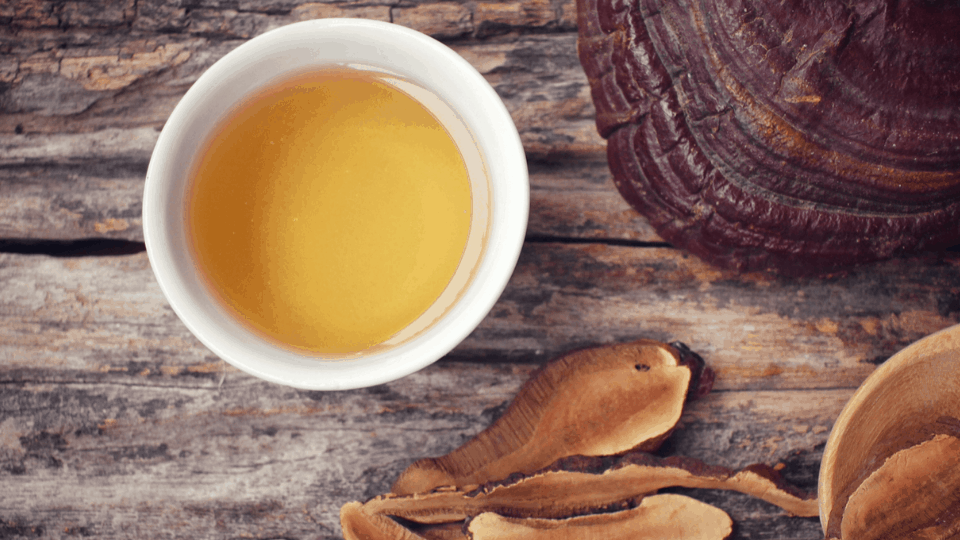
Reishi mushroom is known for its calming effects, which could be due to how it influences neurotransmitter activity in the brain.[14]* Compounds in reishi appear to interact with neurotransmitters to reduce symptoms of depression and anxiety,* at least in stressed-out mice!
Reishi may also promote the maturity of dendritic cells: cells that present potential pathogens to other immune cells.* This could help prevent illness in times of stress by prompting white blood cells to destroy and remove invading pathogens.[15]* Polysaccharides from reishi may offer further immune support through increased antioxidant activity that lowers inflammation.[16]*
Combining reishi with cordyceps may have particular benefits if you’re highly athletic:* One small study of elite athletes showed that taking the two mushrooms together protected against overtraining syndrome, a condition that occurs when your body doesn’t get enough rest between intense workouts.[17]
5) Shiitake: Stress-Relieving Immune Booster*
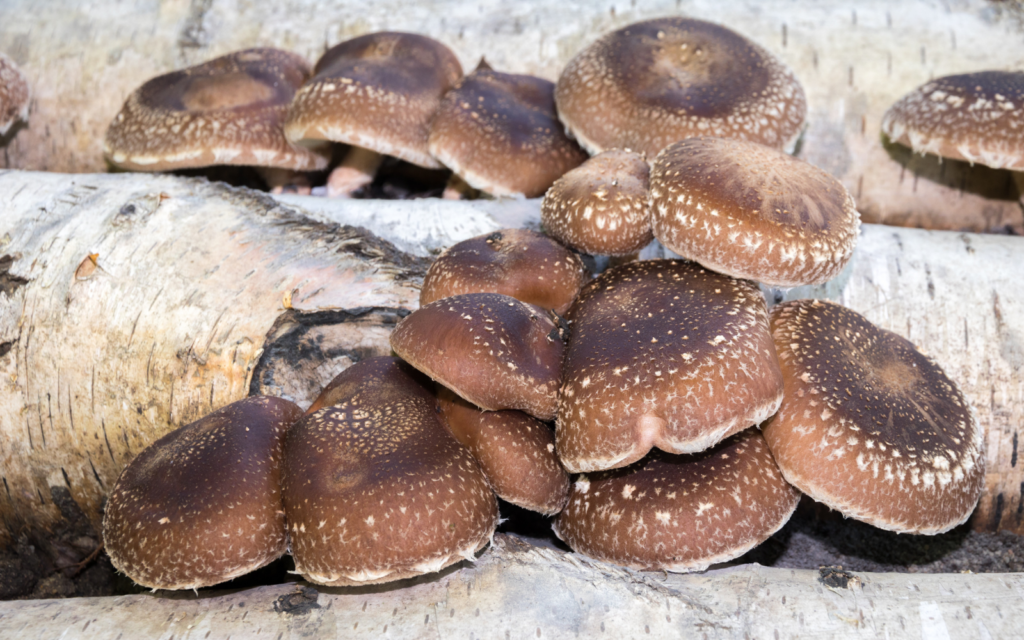
Edible mushrooms may also have stress-busting properties.* Shiitake mushrooms, for example, contain magnesium, a mineral known for its relaxing effects. Low magnesium is associated with higher levels of stress hormones like epinephrine, and magnesium deficiency may lead to an overactive HPA response.[18] Shiitake mushrooms also contain small amounts of B vitamins, which have been shown to reduce stress symptoms.[19]
Taking shiitake mushroom in supplement form may have additional benefits. Shiitake extracts appear to reduce the immunosuppressive effects of cortisol by enhancing:*[20]
- Innate immunity, the immediate response to infection
- Adaptive immunity, which includes antibody formation
- Cellular immunity, the response that attacks and removes germs and toxins
If you tend to get sick a lot when you’re stressed, a shiitake supplement could help shore up your immune defenses.*
Mushrooms for Stress: Combination and Dosing
What’s the best way to use these functional mushrooms for stress relief? You can try each on its own or “stack” them in different combinations. (See our “Can You Stack Mushrooms?” post for more details on mushroom stacks.)
Mushroom extracts in powder form are easiest to combine because you can control the amount of each mushroom and test how it affects your stress response. We recommend starting with one gram of each supplement, but therapeutic doses vary. Here are some common suggestions based on research and typical use:
- Chaga: 500 milligrams to 1.5 grams per day[21]
- Cordyceps: 3 to 6 grams per day[22]
- Lion’s mane: 750 milligrams to 5 grams per day[23]
- Reishi: 1.4 grams to 5.4 grams per day[24]
Note that these amounts are based on functional mushroom use for general health, not specifically for stress. More human studies with bigger groups are needed to determine the efficacy of mushrooms for stress relief[25] and the amounts required to experience health benefits.
5) David Winston and Steven Maimes, Adaptogens: Herbs for Strength, Stamina, and Stress Relief (Rochester, VT: Healing Arts Press, 2019).
